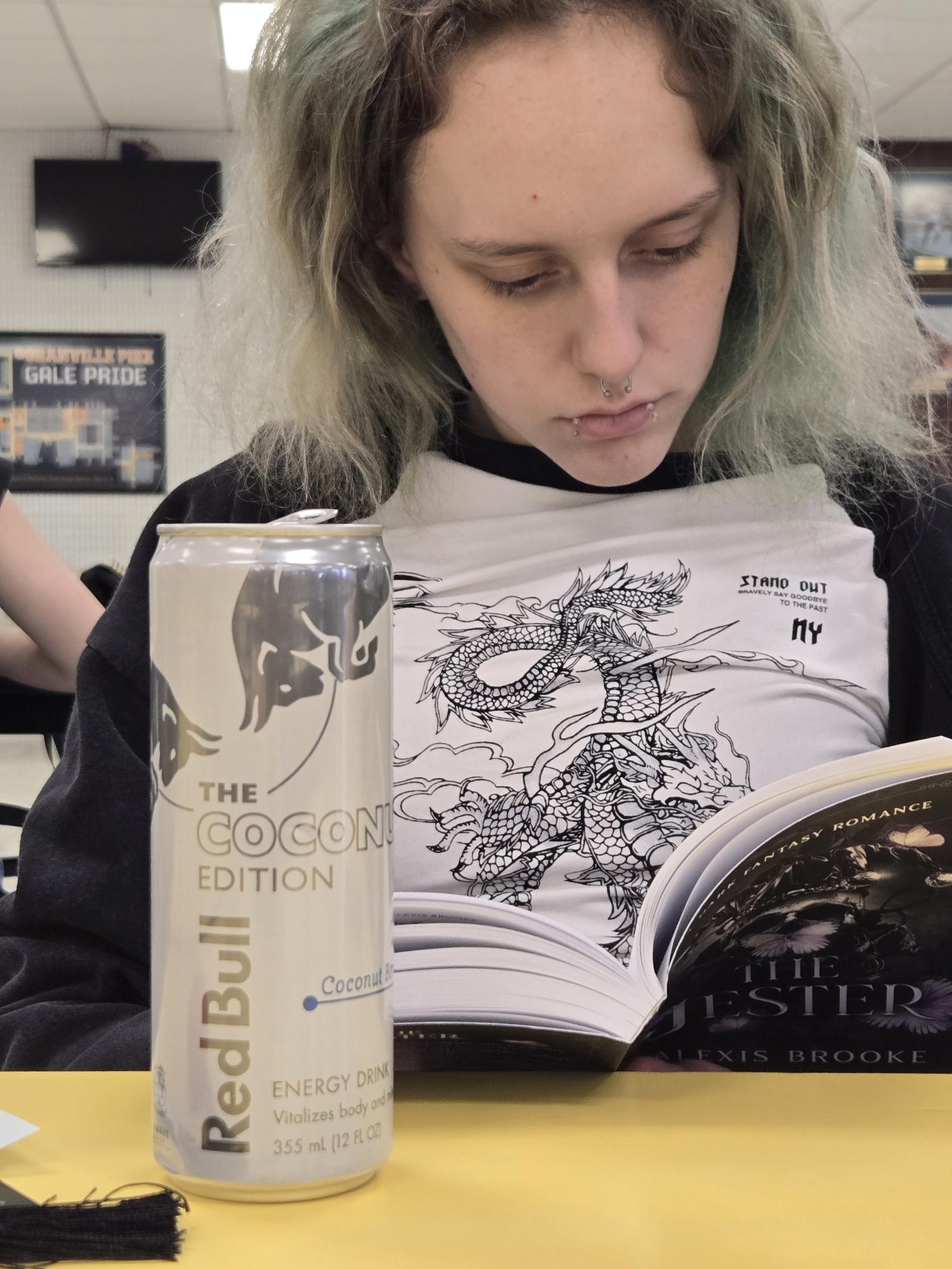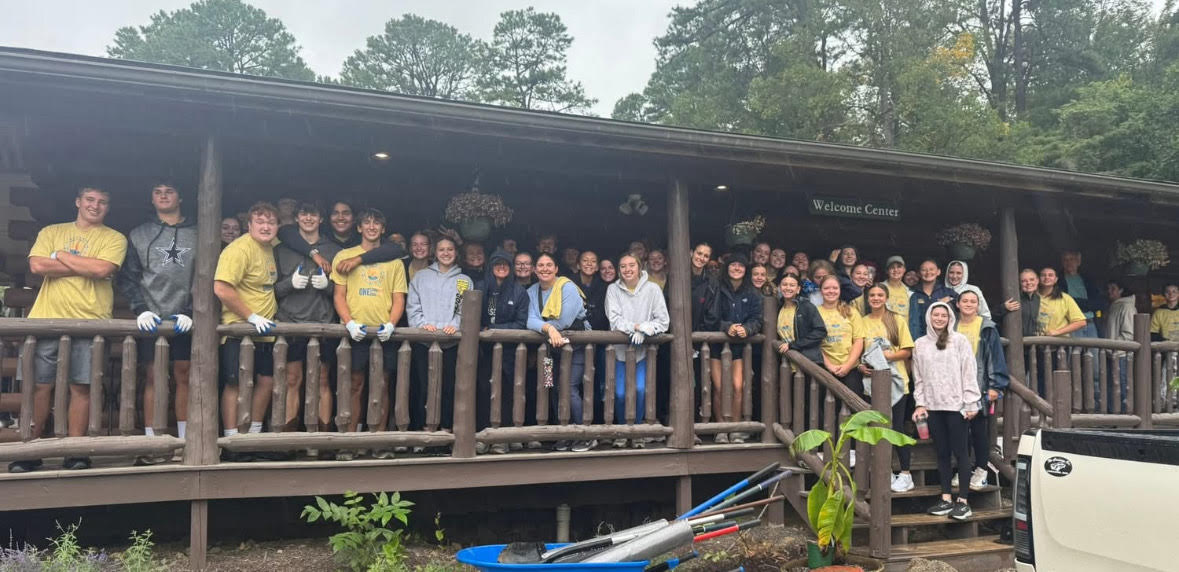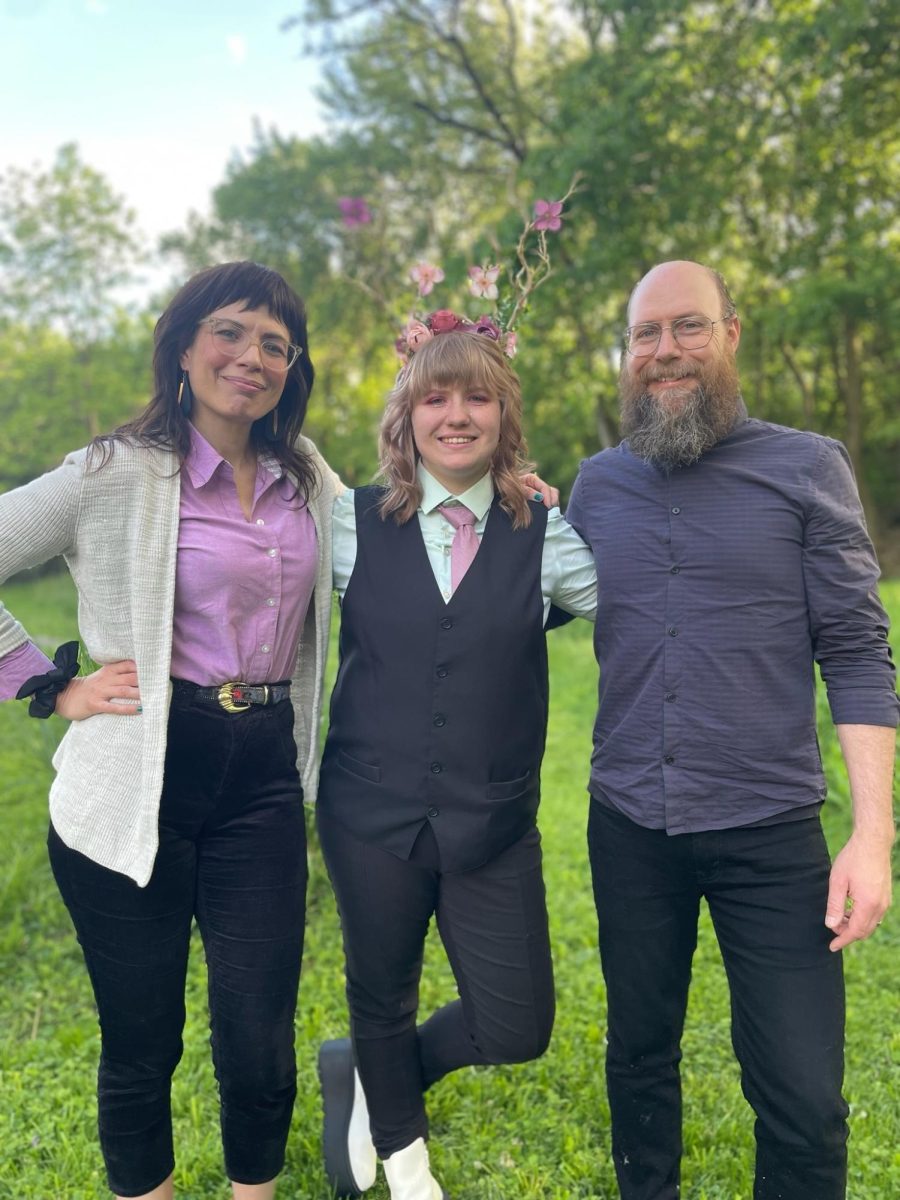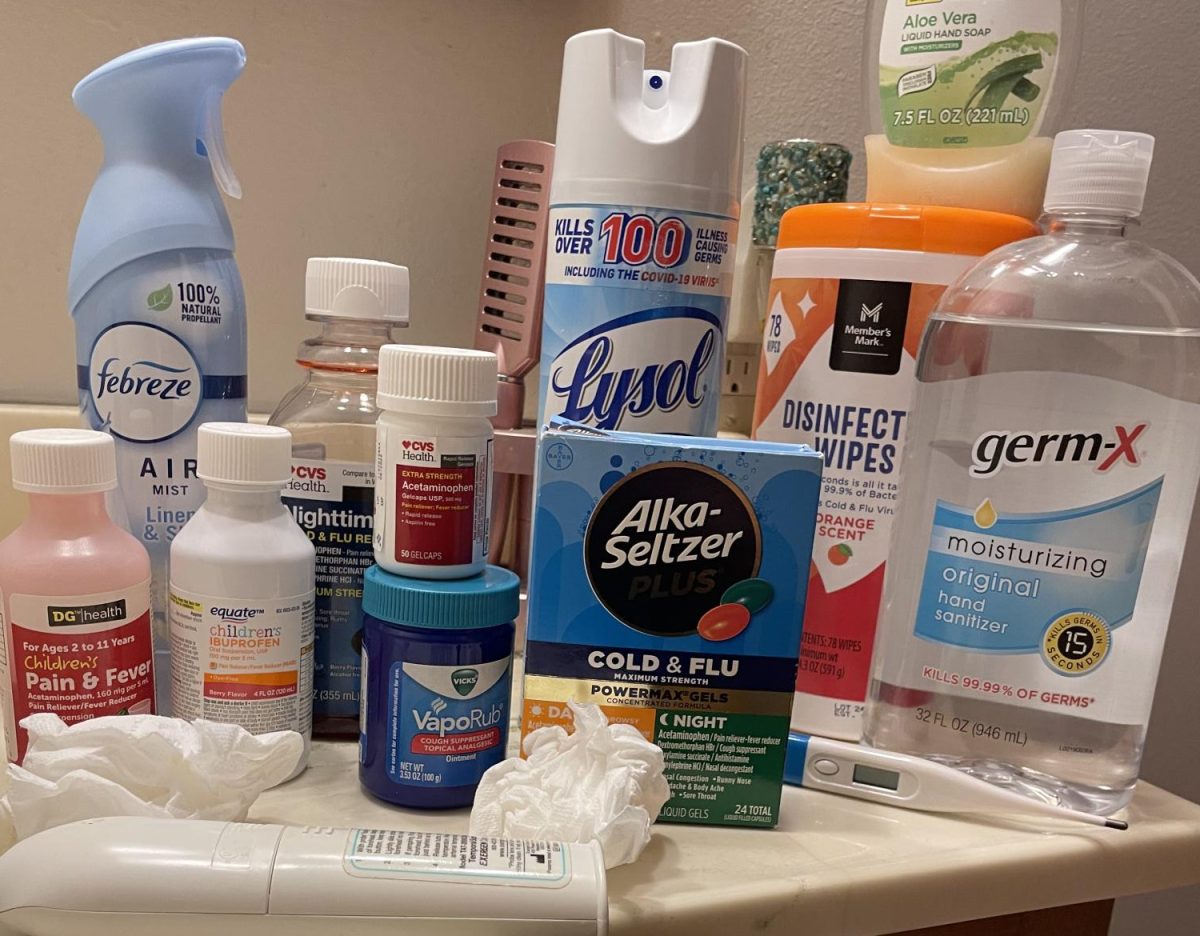Ghost. Reign. Alani. Monster. There are hundreds of energy drinks on the market that promise pep and alertness for those who feel sleepy and sedentary. However, for decades, health officials have warned about the dangers of energy drinks for adolescents and teenagers. Despite the warnings, Lancaster High School students and staff who responded to an Eye of the Gale questionnaire, said that they drink energy drinks to stay alert.
LHS sophomore Jason Zeigler said he drinks energy drinks to help him stay focused.
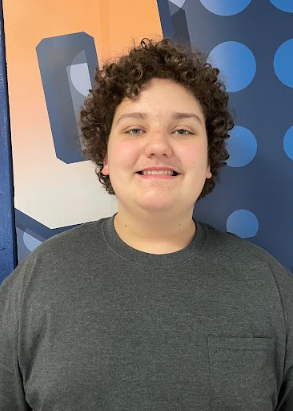
“I use energy drinks to help me wake up when I have to do things; they also help me to kick grogginess when I’m tired after school,” said Zeigler.

LHS staff member Jacinda LeForce said that energy drinks give her the get up and go she needs.
“I use energy drinks to stay focused and alert, a kick start to my day, as I say,” said LeForce.
Like LeForce, freshman Christian (Damien) Foraker said he needs a pick-me-up.
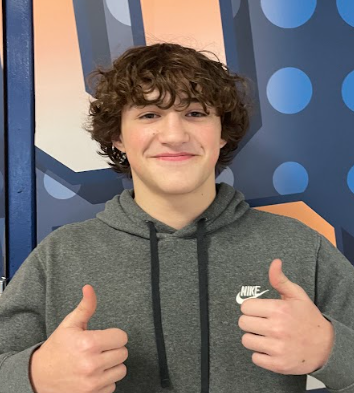
“I use energy drinks so I don’t feel tired during my morning at school,” said Foraker.

LHS freshman Kacie Rhyne-Miller said she uses them to stay energized.
“When I use energy drinks, it feels like my body is on 100% charge,” said Rhyne-Miller.
Although there are many benefits to drinking energy drinks, there are downsides. According to an article published by Seattle Children’s Hospital, Dr. Suzan Mazor said drinking energy drinks can lead to several harmful effects, especially for young people.
“The bottom line is that children and adolescents should never consume energy drinks. Energy drinks can also cause irregular heart rhythms and other life-threatening heart-rhythm changes,” she said.
“People who have heart disease or high blood pressure are at additional risk,” said Mazor.
The daily recommended amount of caffeine for an adult is 400 milligrams, and for kids between the ages of 12 and 18, it’s 100 milligrams. The caffeine in Alani is 200 milligrams; twice the amount recommended for teens.
According to the Cleveland Clinic neurocritical care specialist Marc-Alain Babi, energy drinks are not regulated by the FDA.
“Which means brands can add ingredients they want to the beverage. And in many cases, that includes excessive amounts of stimulants, like caffeine, excess sugar and artificial sweeteners,” said Babi.
Harmful side effects and negative symptoms are real. LeForce said that she has experienced negative side effects from using energy drinks.
“I have experienced heart palpitations and jitters, nausea at times as well, but only if I overdo it – three or four drinks in a short amount of time,” she said.
When she was much younger, LeForce said that she had a very frightening experience and had to seek medical help.
“I was truly frightened and thought that I was going to die. I worked a first-shift and third-shift job (attempting to make and save money) and I absolutely used energy drinks and energy supplements (they were popular in the mid 90’s) to keep awake and alert. I overdid it. My anxiety was terrible! I was awake for nearly two days [with] my heart racing, jittery, and dizzy before I crashed. Then I slept for fourteen hours straight. That was the last time I took an energy supplement in pill form,” said Leforce.
Others Eye of the Gale interviewed admitted to also feeling ill from energy products.
“I have experienced some negative effects from energy drinks. I have felt headaches and shaking,” said Foraker.
Rhyne-Miller said the negative experiences she has occur only minutes after consumption.
“I experience the jitters and shaking. I thought that at first, it was scary but I’m so used to it that it’s normal to me. For me, it takes about ten to twenty minutes for the symptoms to go away,” she said.
To prevent negative side effects, Zeigler said he tries to avoid overdoing energy drinks.
“I have not personally experienced any negative effects of energy drinks, but I am very moderate in my consumption,” he said.


